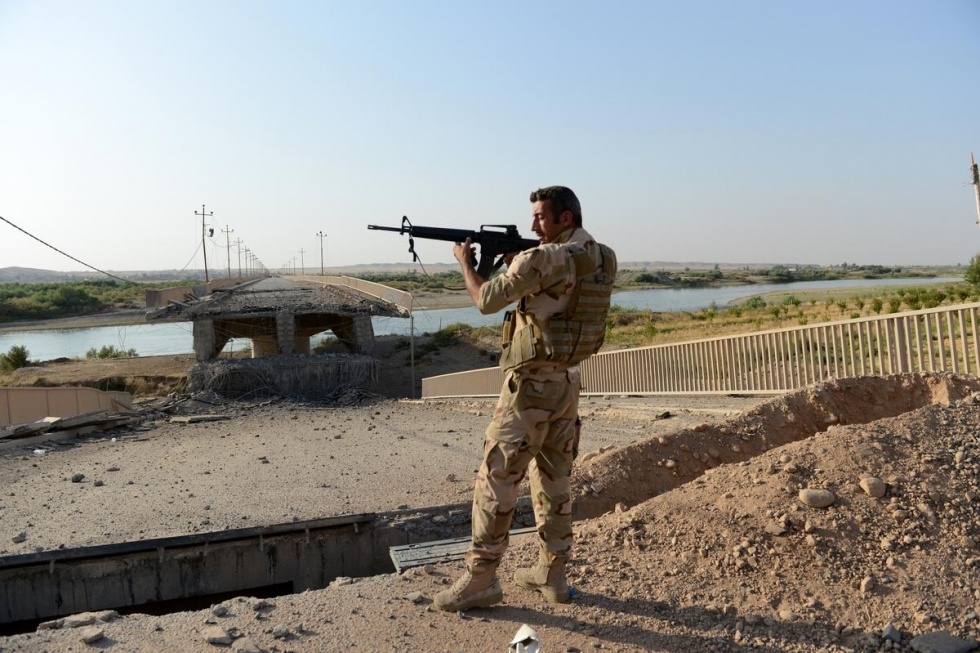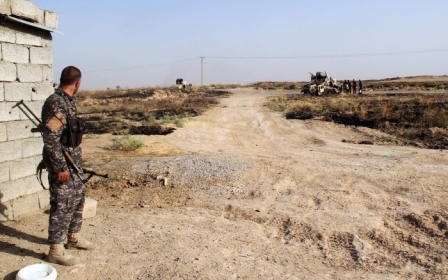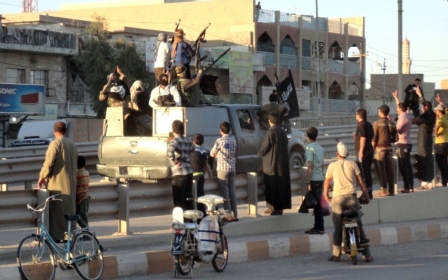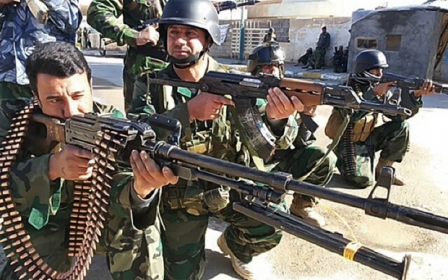Iraqi forces break militant siege of Amerli

Iraqi forces on Sunday broke through to the militant-besieged town of Amerli, where thousands of people have been trapped for over two months with dwindling food and water, officials said.
"Our forces entered Amerli and broke the siege," security spokesman Lieutenant General Qassem Atta told AFP.
Details of the break of the siege were not immediately available, but BBC News reported that an unknown number of Amerli residents were being airlifted from the town on Sunday.
The breakthrough comes after western warplanes dropped aid on Sunday to Amerli, accompanying US air strikes in the area. The strikes are the furthest south that US forces have intervened in Iraq, barring reconnaissance flights, since their withdrawal in December 2011.
Besieged since June, the mainly Turkmen residents of the Salaheddin province town of Amerli, where the United Nations has warned of the risk of sectarian massacre by the besieging Sunni Arab militants, have been running desperately short of food and medicines.
Thousands of Shiite militiamen and Kurdish fighters have been amassing for days for an operation to break the siege, alongside the Iraqi army, which was left in disarray by the lightning offensive the militants launched in second city Mosul in early June.
Washington launched air strikes in support of Kurdish forces in northern Iraq on 8 August.
But it has so far been reluctant to expand its operations amid Pentagon warnings that military intervention alongside Baghdad government forces risks further alienating Sunni Arabs without more strenuous efforts by the Shiite-led administration to engage the disenchanted minority community.
Shiite militias, Peshmerga close in
Shiite militia and Kurdish forces closed on the besieged enclave on Sunday, reaching within five kilometres of the forces inside it, militia commander Mohammed Mahdi al-Bayati said.
A roadside bomb south of the town killed four militiamen, officers said.
Australian, British, French and US aircraft dropped relief supplies to the thousands of civilians trapped in the enclave.
"At the request of the government of Iraq, the United States military today airdropped humanitarian aid to the town of Amerli," said Pentagon spokesman Rear Admiral John Kirby.
"The United States Air Force delivered this aid alongside aircraft from Australia, France and the United Kingdom, who also dropped much needed supplies."
The aid drops came alongside "coordinated air strikes against nearby ISIL (Islamic State) terrorists in order to support this humanitarian assistance operation," Kirby said.
The operations, he added, will be limited in their scope and duration as necessary to address the humanitarian situation and protect civilians in Amerli.
US Central Command said the US supplies dropped included around 47,775 litres of drinking water and 7,000 pre-packaged meals.
Fresh US strikes near Mosul Dam
The US military also launched fresh air strikes Saturday on IS forces near Iraq's largest dam, north of the militant-held northern city of Mosul, the Pentagon said.
Kurdish forces retook the dam after briefly losing it to the militants earlier this month, securing the source of much of the power and irrigation water for the region around Iraq's second city.
US air strikes destroyed three Humvees, one armed vehicle, a checkpoint and a tank in IS's possession near Amerli, according to the Pentagon. It was not immediately clear why the US had renewed strikes near the dam.
Islamic State and its allies control swathes of both northern and western Iraq and neighbouring northeastern Syria where their rule has witnessed a spate of atrocities that have shocked the world.
Washington has thus far ruled out any cooperation with the Damascus regime against the militants but has attempted to enlist the support longtime foe Tehran, a key backer of Syrian President Bashar al-Assad.
Writing in the New York Times, US Secretary of State John Kerry urged "a united response led by the United States and the broadest possible coalition of nations" to combat IS.
Kerry said he and Defence Secretary Chuck Hagel would meet European counterparts on the sidelines of an upcoming NATO summit to enlist assistance, and then travel to the Middle East to build support "among the countries that are most directly threatened".
US President Barack Obama has acknowledged that Washington has no strategy yet to tackle IS, which has declared an Islamic "caliphate" in the territory under its control in Iraq and Syria.
Middle East Eye propose une couverture et une analyse indépendantes et incomparables du Moyen-Orient, de l’Afrique du Nord et d’autres régions du monde. Pour en savoir plus sur la reprise de ce contenu et les frais qui s’appliquent, veuillez remplir ce formulaire [en anglais]. Pour en savoir plus sur MEE, cliquez ici [en anglais].




